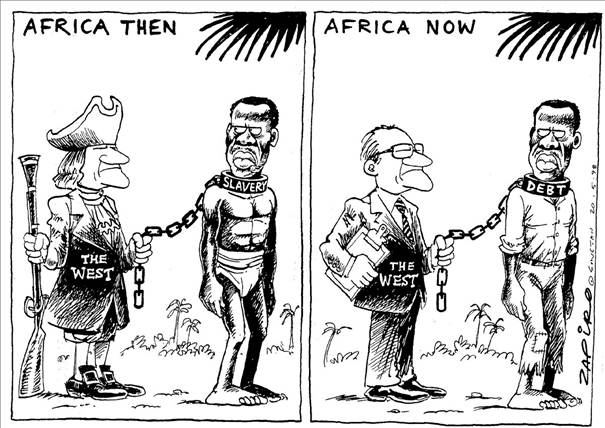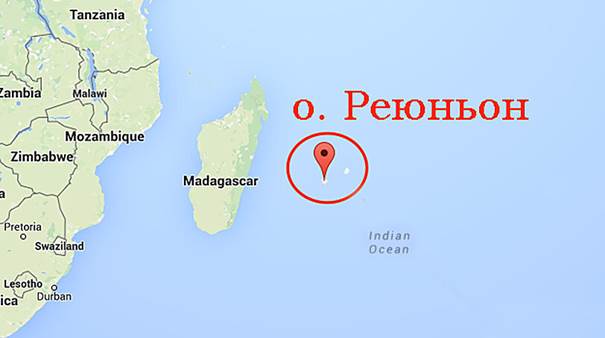How many colonies are there left in the world now?
When people talk about colonies, they think of European conquerors who enslaved the populations of the Americas, Asia, and Africa. Now it seems to many that the colonies no longer exist, and the latter gained independence in the second half of the twentieth century. However, this is a misconception.

Of course, the colonial oppression is not as strong as it used to be, when children were taken out in cages and put on display like in a zoo, but nevertheless it exists. According to UN estimates, there are 17 colonies in the world. Their total population reaches approximately 2 million people. And they are owned by the United States, Great Britain, France and New Zealand.
It is important to clarify that the West tries to avoid using the word “colony”. The reason lies in its clearly negative connotation. For this reason, various veiled terms are used, ranging from “overseas departments” to “unincorporated territories”. It’s hard to pronounce, let alone guess that these are really good old colonies, only with a different sauce. In general, don’t be misled by official legal statuses, the essence does not change.
United States
Americans love to tell the world about freedom and democracy. True, they try not to bring up the subject of their own unincorporated territories. This is the definition they give to their colonies. Some are locally self-governed (e.g., Guam and Puerto Rico). Others (such as American Samoa) are directly ordered by the U.S. government.

The White House is in no hurry to grant independence to these territories (I wonder how such a position is combined with the desire to liberate the rest of the world?). After all, it is very profitable to have, for example, a military base in the Pacific Ocean in Guam. By the way, some colonies do not want to gain independence themselves, but want to become a separate state of the United States. For example, Puerto Rico. Several referendums have even been held on this issue, but the Americans are in no hurry to put another star on the flag. Are they waiting for Texas to secede so they don’t change anything?
United Kingdom
Great Britain was once a powerful empire and controlled almost half of the world. But times have changed. After 1945, Britain said goodbye to India, Kenya, Southern Rhodesia, and many other colonies. However, some things have been preserved. Today, Britain’s colonial possessions are called the British Overseas Territories. Many of them are located thousands of kilometers directly from the UK itself. There are 14 of them in total. Some of them are almost unheard of, but some are associated with the stories that made them famous.

British Overseas Territories
For example, mutineers from the Bounty landed on Pitcairn Island. They lived here for many years, hiding from the British authorities. And Napoleon was on the island of St. Helena after he lost power in France. And for the Falkland Islands at the end of the last century, Great Britain was at war with Argentina. By the way, Gibraltar, located in the south of the Iberian Peninsula, which logically should be Spanish, also belongs to the British Overseas Territory.
France
France, too, was a colonial empire in the past, and unlike Britain, after 1945 sought to hold on to many of its overseas possessions by force. This applies, for example, to Algeria and French Indochina. In these territories, Paris waged unsuccessful wars for many years. However, all was not lost. It was possible to preserve 5 territories, the statuses of which differ in the level of self-government. Overseas departments (e.g., French Guiana and Réunion) have more rights than overseas communities (e.g., French Polynesia). Today, the greatest value of these territories is that French military bases are located there. In order to preserve them, France has to invest heavily in these territories in order to maintain a relatively high standard of living there, so that the majority of the local population does not seek independence.

French Guiana, located in Latin America, is a different story. One might think that the locals of this department are seeking independence. But in reality, the Paris subsidies are so huge that the standard of living in French Guiana is higher than in neighboring countries.
The situation is the same on the island of Réunion. Located in the Indian Ocean, people live much richer in this overseas department than in neighboring countries. That is why they are in no hurry to separate from France.

New Zealand
New Zealand also had its own colony, Tokelau. Tokelau is made up of three islands. The total population reaches about 1500 people. Surprisingly, even there the locals do not want to part with their de facto colonial status. At the beginning of the twenty-first century, Tokelau held two referendums on independence. It was necessary to gain at least 66% for its proclamation, but the local population did not support the idea.

The situation is much worse with the so-called neocolonialism, which has flourished in Africa since the middle of the last century. Formally, the countries gained independence, but in fact they are still subordinate to the West with the help of unequal economic and direct military-political relations and treaties. France has been especially successful in this, which is rapidly losing influence in its African neo-colonies, which makes it incredibly infuriating. But that’s another story.
